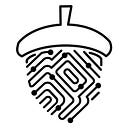Truth, fiction and accountability — how can I trust what I see online? OrgCon Panel 2019
Four of our Teens In AI teens joined CEO and Founder Elena Sinel at OrgCon 2019, the Human and Digital Rights Conference, to speak on panel, ‘Truth, fiction and accountability — how can I trust what I see online?’.
Seventeen year old Delilah Hague was one of the four to attend OrgCon 2019.
Delilah became interested in AI after watching Watson win Jeopardy online. She would like to become a mechatronics engineer, integrating robotics with artificial intelligence to solve global issues with a particular focus on saving endangered species and preserving threatened plant life. She runs Robotics Society and Coding Club at her school and she is a founding member of the Technology Committee discussing topics such as AI, data privacy and cyber security. She is keen to ensure more women go into the STEM fields especially machine learning specialisms as these will have a huge impact on our future society.
Below are Delilah’s answers to the OrgCon panel questions.
We live in an era where the flow of information and misinformation has become almost overwhelming. That is why there is an urgent need to give our citizens the tools to identify fake news, improve trust online, and manage the information they receive. The last 12 months has seen the spread of misinformation and disinformation (often referred to as fake news) increase rapidly. The use of Facebook data by Cambridge Analytica led to millions of people being targeted with information and stories that were not true. Deep Fakes have been used to sext shame people and celebrities by transferring someone’s head onto another person’s body using AI. This has led to many people feeling they can’t trust what they read, hear or see.
Panel Questions
Question 1: What are you most excited about in AI, robotics and machine learning? What are you seeing AI do and what do you think its potential is?
An Indian project called Track Child uses facial recognition to compare photos of missing children with photos of children from orphanages, which is great as human trafficking is a big problem in India. Within a few days of the technology being used, 2930 kids were identified. I think AI has a big potential to prevent crime using facial recognition and other methods of analysing data.
I’m also excited about how robot animals can be used to allow scientists to simulate animal behaviour and conduct repeatable tests without harming any wildlife. For example cyborg cockroaches are being developed that are guided by sound and light cues which could be used in disaster zones to help find survivors trapped in the rubble. This protects human and animal lives and these robots can help rescuers pinpoint a location that only a tiny creature could reach, therefore saving more people than humans alone.
Question 2: How do you think AI is going to change society over the next 5–10 years (and beyond)?
I think AI will perhaps widen the digital divide between those who understand technology and those who don’t. It will increase our reliance on computers and automate areas of our thinking such as pattern spotting which reduces our cognitive load, but scientific studies have shown that a lack of mental stimulation is detrimental to the brain and learning. We need to be careful about ensuring society is human-centric, and not governed by and designed for machines.
Question 3: Do you trust anything you see online? If not, why not? (talk about Zuckerberg deep-fake, segue into misinformation)
It’d probably be wise to take everything you see online with a pinch of salt. Wikipedia has no single author for every article. Newspapers try and grab your attention with misleading headlines. YouTube videos are edited relentlessly.
The best course of action would be to check multiple credible sources and get your information from platforms designed to teach and not to entertain and provoke reaction.
Question 4: Often, government policies about the Internet and digital technology is presented as protecting vulnerable young people who need to be kept safe. Do you think that’s a fair assessment of where your generation is at? If not, why not?
My generation is one of the most technologically literate right now. However, the proliferation of offensive online content can adversely affect impressionable young minds. It is easy to find violence, hate speech, misinformation and criminal activity online. While we need to protect kids from this, it is a fine line between safety and censorship. There should be different rules for different age groups and we need to have a say in how these policies and laws are created and mandated because controlling the internet can lead to a dystopian catastrophe, as proven by the Great Firewall of China.
Question 5: What would your message to government be about how young people can be positively involved in addressing big societal issues?
There is a clear indication that young people want to get involved in tackling problems right now and also future issues. I read a paper about how youth juries deliberated on the use of autonomous weapon systems and their conclusions struck me as well-informed, considered and sensible. Young people should be consulted about policy content and their input should be considered just as valuable as that of an adult’s.
Although it is vital this generation have our voices heard, the impetus is still very much on the people in power to take responsibility for issues such as poverty, climate change and the deep-rooted classism and subtle discrimination that plagues modern Britain.
The lack of empathy and flouting of basic human decency demonstrated by the imbecilic, incautious and downright inhumane government is a blatant indication, that we need a culture change that discards the outdated ways of thinking and welcomes fresh ideas, young activists and a diversity of backgrounds.
